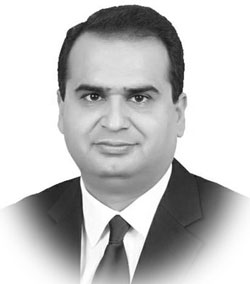Child justice system of Pakistan
CHILDREN who commit criminal of fences are called juvenile offenders in Pakistan and their human rights are protected under both domestic and international laws.
Pakistan has ratified UNCRC and ICCPR and in compliance to these treaties, Pakistan has enacted legislation to protect the human rights of juvenile offenders when they are involved in child justice system, with an aim to rehabilitate and reintegrate them back into society.
The most important safeguard that legislation provides to juvenile offenders in Pakistan is the prohibition of the death sentence to them and awarding special treatment to them during inquiry, investigation, arrest, bail, trial, detention and reformation stages.
Since 2000, the Government of Pakistan has made much efforts for rehabilitation and protection of the human rights of juveniles, but despite this effort the juvenile offenders are reported to be continuously maltreated during their involvement in child justice system of Pakistan.
Some of the common abuses that juvenile offenders experience in Pakistan are their executions, life imprisonment, police brutality, torture, custodial deaths and rape, imprisonment in adult prisons, non-exercising of age determination protocols in juvenile cases, low birth registration rate, trial of juveniles as adult offenders, trial in anti-terrorism courts, low minimum age of criminal responsibility, inadequate legal representation in juvenile cases, pre-conviction detention, non-existence of rehabilitation centres and observation homes for juveniles etc.
In a nutshell, child justice system of Pakistan does not fully protect the human rights of child offenders and best practices in this area which are observed across the world are not observed in Pakistan.
Some of my key recommendations for protection of human rights of child offenders and improvement of child justice system of Pakistan are as follows; The most urgent measure that Government of Pakistan should take is to reinstate the moratorium on death penalty.
Ten percent of current death row population in jails of Pakistan consists of juvenile prisoners. In order to protect them from execution, the Government should launch investigations into their cases to determine the evidence of juvenility at the time of commission of offences and transform their death sentences into life imprisonments and release them on probation or pardon their remaining period of sentence of imprisonment.
The minimum age of criminal responsibility for a child described in Pakistan Penal Code is 10 years and this relaxation is further extended up to the age of 14 years if it is deemed that child has an immature understanding of his conduct and its nature and consequences at the time of commission of offence.
However, internationally accepted level of age of criminal responsibility ranges from 14 to 16 years old as adopted by UNCRC Committee in 2019 in its general comment number 24.
The Committee encouraged States to adopt the higher minimum age of criminal responsibility, ie 16 years onwards and if there is no proof of age and it cannot be established that the child is below or above the minimum age of criminal responsibility, the child is to be given the benefit of doubt and is not to be held criminally responsible.
It is therefore of paramount importance that a medico-legal expert or forensic child psychiatrist assesses the child’s emotional understanding, intellect and biological age in total. This would have an impact in determining his criminal responsibility and his capacity to defend the case.
Child offenders are often victims of torture, custodial death and rape during police investigation and incarceration in jails. To date there is no law expressedly criminalising torture in Pakistan, despite Pakistan’s ratification of the convention against torture in 2010.
It is, therefore, highly recommended that the Government should enact an exclusive legislation to criminalise torture. 90 per cent of juvenile prisoners incarcerated in prisons of Pakistan are under-trial prisoners.
Keeping a juvenile as an under-trial prisoner is one of the most unjust and degrading treatment that can be given to a human being. Some juvenile under-trial prisoners are not even found guilty at the conclusion of trial and suffer amongst hardened habitual offenders in jails for no fault of their own.
Their childhood and innocence are lost forever. So, under-trial juvenile prisoners should be released on bail, this will not only overcome the problem of overcrowding in prisons of Pakistan but also protect juveniles from abuses and hardships undergone in jails.
Convict or condemned child prisoners, who are imprisoned in jails of Pakistan, their rehabilitation and provision of psycho-social support is very important. So that when they would release from the jails, they become responsible citizens and not engage in committing such kind of offences again.
Therefore, the Government should establish juvenile rehabilitation centres across the country and transfer the child prisoners from jails to rehabilitation centres for their reclamation.
The aforesaid violations of human rights of child offenders in child justice system can be avoided if the law applicable on child offenders – Juvenile Justice System Act 2018 – is fully implemented in Pakistan and all other stakeholders (police, judiciary, prison and forensic experts) responsible for the protection of juvenile offenders rights fulfil their obligations diligently.
—The writer is Advocate High Court/Human Rights Lawyer Based in Islamabad.










